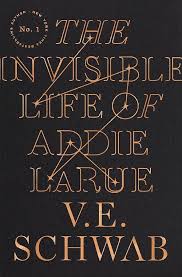Chapter VIII
byChapter VIII, On the evening of July 30, 2014, within the vibrant yet tense atmosphere of New York City, Addie is confronted by Henry, who challenges her decision to engage with the darkness. This confrontation comes at a critical point, as Addie’s determination not to lose Henry drives her to make a choice that is fraught with peril. Henry, weary and seemingly resigned to their fate, believes that it is too late for any of them to alter the course their lives have taken. He confesses regret over the pact that has put them both in such a dangerous position, hoping that Addie will reconsider and abandon her dangerous plan. Despite his pleas, Addie remains steadfast. She is resolute in her decision and, as a sign of her commitment, places a ring on her finger. This ring becomes more than just an ornament; it’s a symbol of her readiness to face Luc, the embodiment of the darkness, in a confrontation that will inevitably reshape their lives.
Luc’s arrival is marked by an unsettling knock on the door, which, though polite, carries an ominous undertone. The knock is almost a prelude to the tension that will follow, and as Luc enters, he exudes an air of detachment that is in stark contrast to the emotions swirling in the room. His presence is as impeccably composed as always, and he stands untouched by the environment around him. Even in the face of the oppressive heat of the evening, Luc maintains a calm and controlled demeanor, his attire and appearance perfectly arranged, as though he is immune to the world’s discomforts. His entry into the room, devoid of warmth or pleasantries, is a reminder of his power over the situation. There is no casual conversation; only a silent expectation that Addie will follow him, stepping into the unknown with nothing but her resolve and the ring she now wears as a sign of her decision. Luc’s indifference to the surroundings, his serene composure, and the cold expectation in his gaze heighten the sense of inevitability that seems to hang between them.
As Luc stands before her, Addie is caught in an intense internal struggle. For a moment, she considers abandoning her plan, turning back to the safety of her apartment and the comfort of Henry’s presence. The temptation of retreat is strong, but she knows that it is no longer an option. The choice has already been made, and she must move forward. Her heart heavy with sorrow and uncertainty, she steps into the hallway, her final glance at Henry lingering with a depth of emotion that words could never convey. In that one glance, Addie communicates a multitude of feelings—regret, love, fear, and the ache of knowing that what she’s about to do could change everything. As she follows Luc into the night, the shadows at the threshold seem to reflect her growing apprehension, but she steels herself to continue on the path she has chosen. Determined to retain some semblance of control over her fate, Addie declares that there will be rules governing her engagement with Luc, signaling her awareness of the risks that lie ahead. She insists on setting boundaries in the face of uncertainty, knowing that while the situation is fraught with danger, she must face it with a clear mind. Addie’s firm stance indicates her understanding of the darkness that seeks to envelope her and her determination not to be consumed by it. She is resolute in her belief that, even in this perilous situation, she must hold on to some control over her destiny. As she takes each step forward, she does so not only with caution but with a deep understanding that her journey into the unknown is filled with deception, manipulation, and a darkness that must be confronted if she is to ever find peace.


